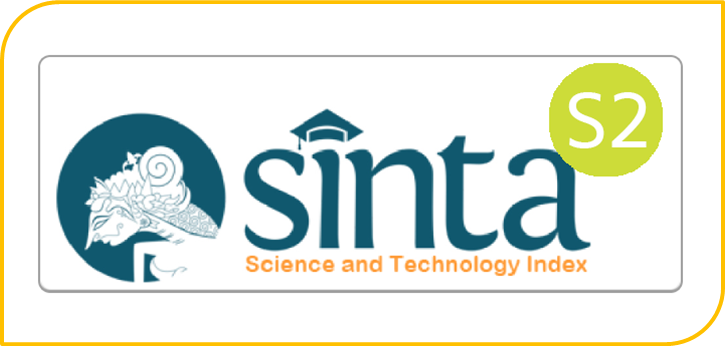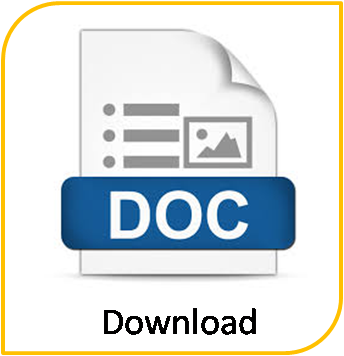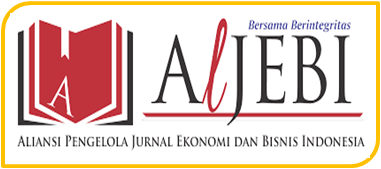INNOVATION AND ISLAMIC FINANCIAL FATWA IMPROVING AGRICULTURAL PRODUCTIVITY
Abstract
The Islamic financial system and its innovations can stimulate agricultural productivity and provide welfare for farmers. This study aims to: (1) reveal the views of farmers about innovation and the fatwa of ulama, (2) farmers' opinions on the Islamic financial system, and (3) farmers' statements about the traditional Islamic financial system in increasing productivity. The research uses a descriptive qualitative case study method with a Giddens structuration approach. This research is concerned with meaning, context, and emic perspective. Data analysis by analyzing important statements, formulating, describing, and reducing data to findings, propositions, and conclusions. Data collection and analysis were carried out simultaneously, prioritizing observation and interviews and the researcher himself as the main instrument. The research findings show the importance of innovation in Islamic finance. Farmers feel very helped by traditional Islamic financial systems such as partnership, one-third share, and one-half share models. The system can help farmers, both the landowner and land manager. The existence of the traditional Islamic financial system supports the welfare of the farming. Better if Indonesia Islamic financial institutions adopt the system. So that financing for farmers becomes easier and encourages the progress of the agricultural sector in Indonesia.
Keywords
Full Text:
PDFReferences
Al-Bugha, M. D. (2010). Fiqh al Mu’awadhah, Buku Pintar Transaksi Syariah. Jakarta: PT. Mizan Publika.
Al-Harran, S. A.S. (1996). Islamic Finance: Partnership Financing, Selangor Darul Ehsan, Malaysia: Pelanduk Publications.
Al-Qaradhawi, Y. (1410 H/1989 M). Al-Ijtihad fi al-Syariah al- Islamiyah. Kuwait: Dar al-Qalam
Al-Qaradhawi, Y. (1993). al-Halal wa al-Haram fi al-Islam. Kairo: Maktabah Wahbah
Al-Qaradhawi, Y. (2001). Madkhal li Dirasah al-Syari’ah al-Islamiyah. Kairo: Maktabah Wahbah
Al-Qasim, A. R. A. Z. (1977). Al-Islam wa Taqnin al-Ahkam: Da’wah Mukhlashah li Taqnin Ahkam al-Syari’ah al-Islamiyah. Kairo: Jami’ah Qahirah.
Al-Suyuthi, J. A. (1987). Al-Asybah wa al-Nazha’ir fi Qawa’id wa Furu’ Fiqh al-Syafi’iyyah. Beirut: Dar al-Kitab al-’Arabi.
Al-Zuhaili, M. (2007). Al-Qawa’idul Fiqhiyyah wa Tathbiqatuha fi al-Madzahib al- Arba’ah. Damaskus: Dar al-Fikr.
Amin, M. (2001). Era Baru Ekonomi Islam di Indonesia: dari Fikih ke Praktik Ekonomi Islam. Jakarta: eLSAS.
Amin, M. (2013). Pembaharuan Hukum Ekonomi Syariah, Dalam Pengembangan Produk Keuangan Kontemporer, Transformasi Fikih Muamalat dalam Pengembangan Ekonomi Syariah. Tanara Serang Banten: Yayasan An-Nawawi.
Antonio, M.S. (2001). Bank Syariah dari Teori ke Praktek. Jakarta: Gema Insani Press-Tazkia Cendekia
Arifin, Z. (2002). Dasar-Dasar Manajemen Bank Syariah. Jakarta: AlvaBeta
Asni, F., & Sulong, J. (2020). The mura’ah al-khilaf and ma’alat method in fatwa decisions: its application for fatwa coordination related to conditional hibah in Malaysia. International Journal of Islamic and Middle Eastern Finance and Management, 14(4), 641–654. https://doi.org/10.1108/IMEFM-05-2018-0181
Ayub, M. (2009). Understanding Islamic Finance. Jakarta: PT. Gramedia Pustaka Utama
Barlinti, Y. S. (2010). Kedudukan Fatwa Dewan Syari’ah Nasional Dalam Sistem Hukum Nasional Indonesia. Jakarta: Badan Litbang dan Diklat Kementrian Agama RI
Bungin, M. B. (2010). Penelitian Kualitatif, Edisi Pertama Cetakan ke-4. Jakarta: Kencana Prenada Media Group
Buzed, A.J. (2004). Fiqh al-Riba: Dirasah Muqaranah wa Syamilah li al-Tathbiqat al-Mu’ashirah. Beirut: Mu’assah al-Risalah.
Chandio, A. A., Jiang, Y., Rehman, A., Twumasi, M. A., Pathan, A. G., & Mohsin, M. (2021). Determinants of demand for credit by smallholder farmers’: a farm level analysis based on survey in Sindh, Pakistan. Journal of Asian Business and Economic Studies, 28(3), 225–240. https://doi.org/10.1108/JABES-01-2020-0004
Chapra, M. U. (2011). The Future of Economics: An Islamic Perspective. Jakarta: SEBI
Chapra, M. U. (2000). Sistem Moneter Islam, Ikhwan Abidin B (penerjemah). Jakarta: Gema Insani Press
Cordier, J., & Santeramo, F. (2020). Mutual Funds and the Income Stabilisation Tool in the EU: Retrospect and Prospects. EuroChoices, 19(1), 53–58. https://doi.org/10.1111/1746-692X.12210
Crane, L. M. d & Leatham, D. J. (1995). External Equity Financing in Agriculture Via Profit and Sharing Contracts: A Proposed Financial Innovation. Journal of Agribusiness, 11(3), 223-233.
Djakfar, M., Khasanah Umrotul, & Meldona. (2019). Studi Inovasi dan Praktik Akad Ganda Sistem Keuangan Islam Tradisional Berbasis Fatwa Ulama Lokal. Syekhnurjati.Ac.Id, 11(2), 241–258. https://doi.org/10.24235/amwal.v11i2.5188
El-Komi, M. S. (2010). Poverty: Allevation Through Microfinance and Implications on Education, Dissertation Doctor of Philosophy in Public Policy, and Political Economy. Amerika Serikat: The University of Texas at Dallas, AS.
Evangelista, R., T. Sandven, G. Sirilli, and K. Smith. 1998. Measuring innovation in European industry. International Journal of the Economics of Business, 5(3), 311-333.
Giddens, A. (1984). The Constitution of Society: Outline of the Theory of Structuration. Barkley: University of Calofornia Press.
Hasan, M. A. (2003). Berbagai Macam Transaksi dalam Islam (Fiqh Muamalat). Jakarta: PT. Raja Grafindo Persada
Hitt, M. A., R. D. Ireland, S. M. Camp, & D. L. Sexton. (2001). Strategic entrepreneurship: entrepreneurial strategies for wealth creation. Strategic Management Journal, 22(7), 479- 491.
Hudayati, A. (2009). Hubungan Sistem Pengendalian Manajemen dan Kinerja Pembiayaan Bagi Hasil serta Kinerja Bank Islam di Indonesia, Fenomena, 7(1)
Isma’il, S. M. (1985). Al-Tasyri’ al-Islami: mashadiruh wa Athwaruh. Mesir: Maktabah Nahdhah
Jumu’ah, A. (2008). Shina’ah al-Ifta, Kairo: Nahdhah Mishr
Kaleem, A. & Abdul W. R. (2009). Application of Islamic Banking Instrument (Bai Salam) for Agriculture Financing in Pakistan. British Food Journal, 3(3), 275-292.
Karim, R. AA and Ali, A. E. (1989). Determinants of The Financial Strategy of Islamic Banks. Journal of Business Finance & Accounting, 16(2), 193- 212.
Kasdi, A. (2019). Actualizations of Maqāşid Al-shariah In Modern Life; Maqāşid Al-shariah Theory As a Method of The Development of Islamic Laws and Shariah Economics. Justicia Islamica, 16(2), 247–268. https://doi.org/10.21154/justicia.v16i2.1666
Khan, A. K. (2010). Essay on Faith and Islamic Finance, Dissertation Doctor of Business Administration. Amerika Serikat: Harvard Bussiness School
Khasanah, U. (2013). The Practice of Profit and Loss Sharing System For Rice Farmers in East Java, Indonesia. IOSR Journal of Business and Management, 9(3), 1–7. https://doi.org/10.9790/487x-0930107
Khasanah, U. (2015). Islamic Financial Leteration and Inclusion Model Towards a Green Economy in Urban Farmer Community (The Urban Farmer’s Perspektif in Malang City-East Java – Indonesia). Australian Journal of Basic and Applied Sceincec, 9(7), 239-241
Khasanah, U. (2019). Islamic Financial Innovation in Agriculture, Facilitate Farmer Access to Obtain Food Production Financing. International Journal of Engineering &Technology, 8 (1), 477-482.
Khasanah, U., Meldona, M., & Djakfar, M. (2020). Studi Dampak Pemberdayaan Sistem Keuangan Syariah Al-Ijarah Bagi Pelaku Umkm. El Dinar, 8(2), 115–129. https://doi.org/10.18860/ed.v8i2.8856
Kompas. (2011). Produksi Beras: Krisis Lahan Pertanian Pangan Terjadi, Kompas, 3 November 2011, (17).
Kuratko, D. F., R. D. Ireland, J. G. Covin, & J. S. Hornsby. 2005. A Model of Middle-Level Managers’ Entrepreneurial Behavior. Entrepreneurship Theory and Practice, 29(6), 699-716.
Makiyan, S. N. (2003). Role of Rate of Return on Loans in the Islamic Banking System of Iran. Managerial Finance, 29(7), 62-69.
Marr, A., Winkel, A., van Asseldonk, M., Lensink, R., & Bulte, E. (2016). Adoption and impact of index-insurance and credit for smallholder farmers in developing countries: A systematic review. Agricultural Finance Review, 76(1), 94–118. https://doi.org/10.1108/AFR-11-2015-0050
Masud, K. (1977). Islamic Legal Philosophy: A Study of Abu Ishaq al-Shathibi’s Life and Thought. Islamabad: Islamic Research Institute.
Mishchenko, S., Naumenkova, S., Mishchenko, V., & Dorofeiev, D. (2021). Innovation risk management in financial institutions. Investment Management and Financial Innovations, 18(1), 191–203. https://doi.org/10.21511/imfi.18(1).2021.16
Mubyarto. 2005. Pengantar Ekonomi Pertanian. Jakarta: LP3ES
Mudzhar, M. A. (1994). Kontekstualisasi Doktrin Islam Dalam Sejarah. Jakarta: Yayasan Wakaf Paramadina.
Mudzhar, M. A. (2013). Pembaharuan Hukum Ekonomi Syariah, Dalam Pengembangan Produk Keuangan Kontemporer, Transformasi Fikih Muamalat dalam Pengembangan Ekonomi Syariah. Banten: Yayasan An-Nawawi.
Mursyid, S. (n.d.). Konsep Toleransi (Al-Samahah) Antar Umat Beragama Perspektif Islam. 35–51.
Musa, K. (1989). Al-Madkhal ila alTasyri’ al-Islami. Beirut: Mu’assasah al-Risalah
Pradhan, R. P., Arvin, M. B., Nair, M., Bennett, S. E., Bahmani, S., & Hall, J. H. (2018). Endogenous dynamics between innovation, financial markets, venture capital and economic growth: Evidence from Europe. Journal of Multinational Financial Management, 45, 15–34. https://doi.org/10.1016/j.mulfin.2018.01.002
Rafikov, I., & Akhmetova, E. (2020). Methodology of integrated knowledge in Islamic economics and finance: collective ijtihād. ISRA International Journal of Islamic Finance, 12(1), 115–129. https://doi.org/10.1108/IJIF-02-2019-0034
Rahardjo, M. D. (2003), Bank Islam: Asnalisa Fiqih dan Keuangan. Jakarta: IIIT Indonesia.
Rosly, S. A. (2010). Shariah parameters reconsidered. International Journal of Islamic and Middle Eastern Finance and Management, 3(2), 132–146. https://doi.org/10.1108/mf.2008.00934jaa.001
Sam, H.M. I. (2011). Tanya Jawab Seputar Dewan Syariah Nasional Majelis Ulama Indonesia. Jakarta: DSN-MUI.
Zhang, M., Macpherson, A., & Jones, O. (2006). Conceptualizing the learning process in SMEs: Improving innovation through external orientation. International Small Business Journal, 24(3), 299–323. https://doi.org/10.1177/0266242606063434
DOI: https://doi.org/10.18860/ed.v10i2.17434
Refbacks
- There are currently no refbacks.
Editorial Office:
Megawati Soekarnoputri Building
Faculty of Economics
E-mail: eldinar@uin-malang.ac.id
Universitas Islam Negeri Maulana Malik Ibrahim Malang
E-ISSN 2622-0083

El Dinar under a CC BY SA 4.0 International License.
Member of:
Indexed By:
















